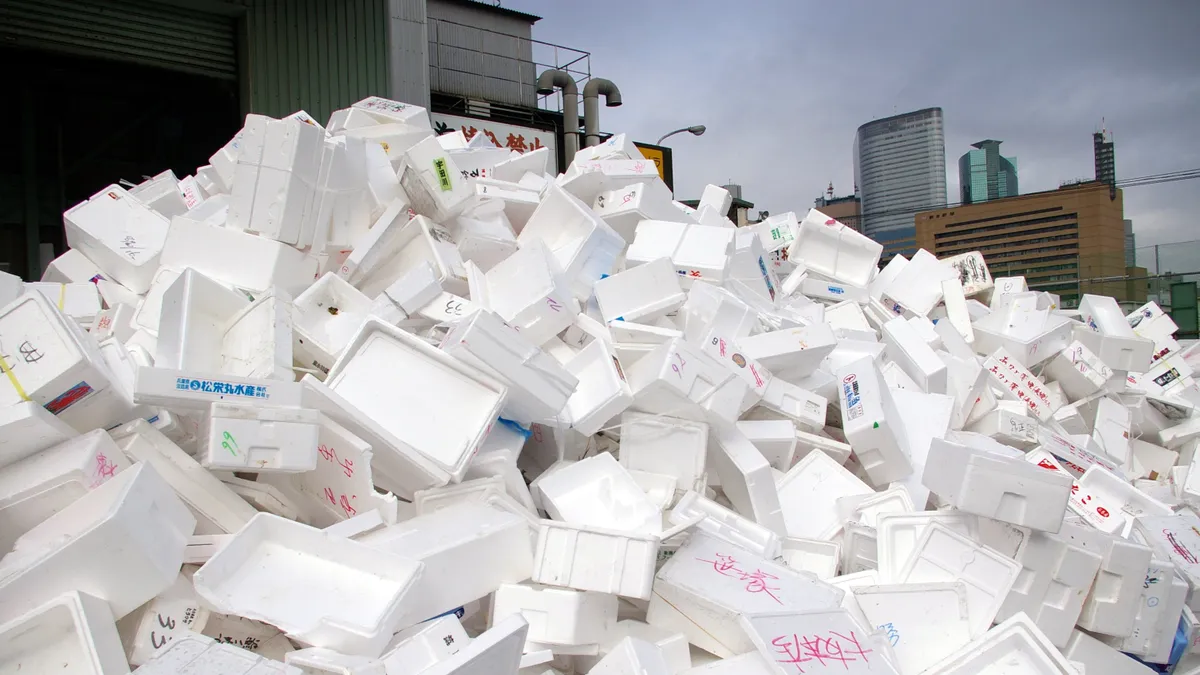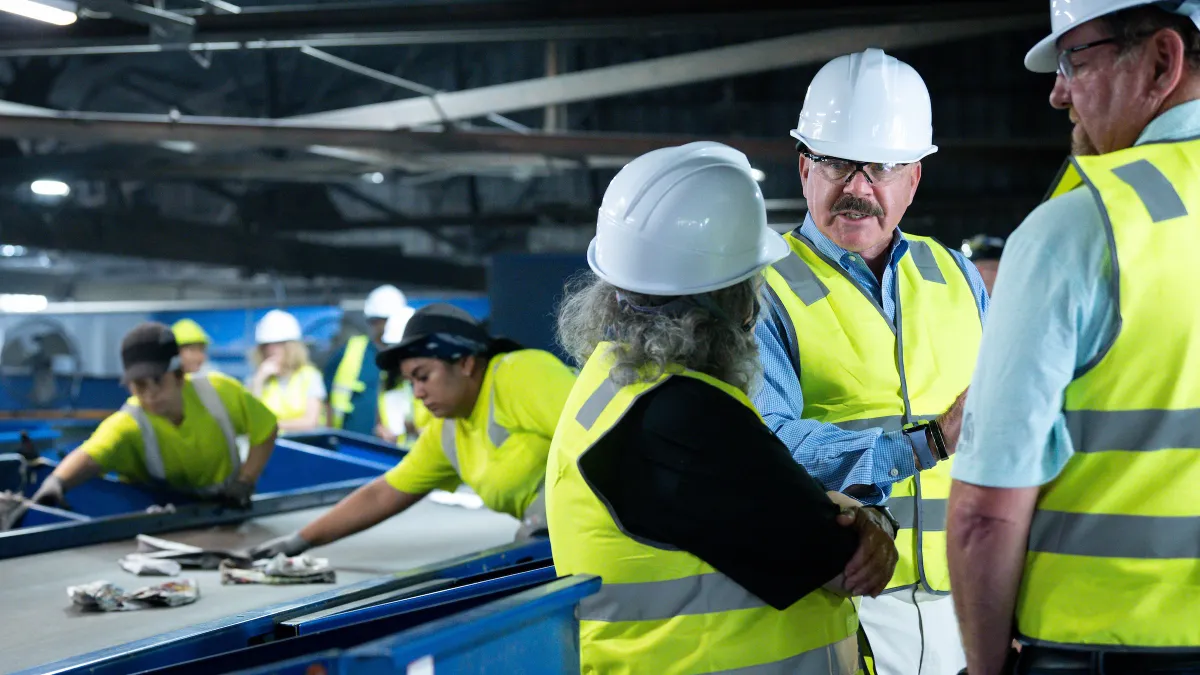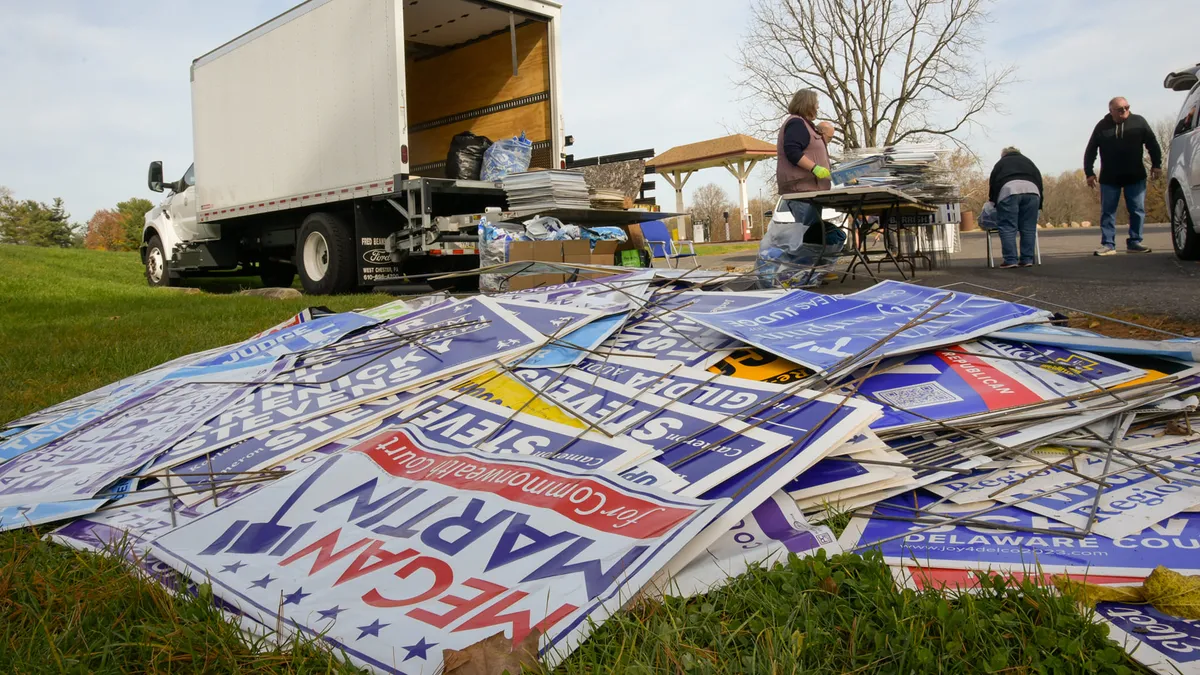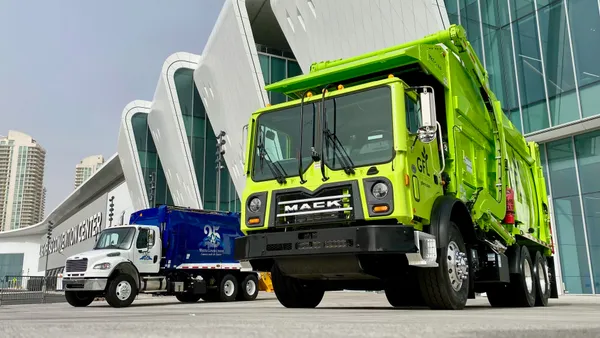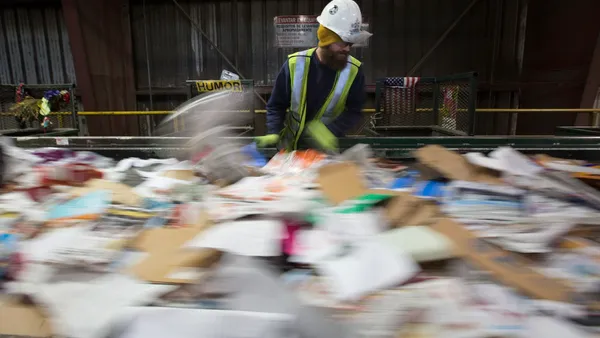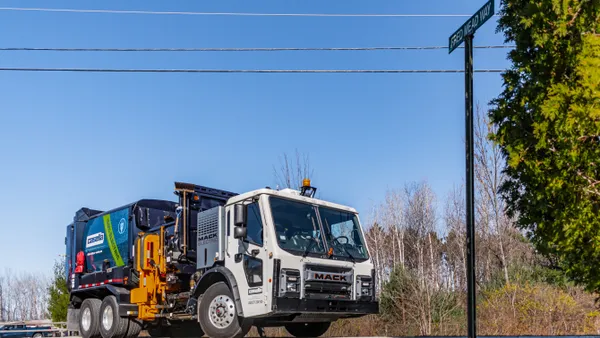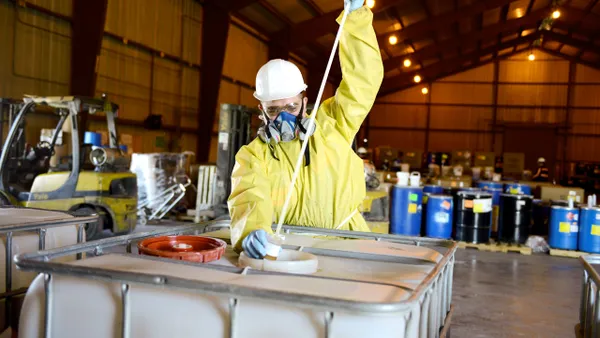Dive Brief:
- Justice Margaret A. Chan of the State Supreme Court in Manhattan has overturned New York City's ban on polystyrene foam (or Styrofoam) packaging.
- The judge insisted that the ban would not benefit the city in an environmental or economical way, and urged the NYC Department of Sanitation to develop a new solution to manage Styrofoam waste, such as paying for better machinery to clean and recycle the Styrofoam. Justice Chan said the city could make at least $400,000 by recycling 40% of its yearly plastic-foam waste, according to The New York Times
- City officials disagree with the ruling and are exploring ways to reinstitute the ban, such as an appeal.
Dive Insight:
After announcing the polystyrene ban on July 1, NYC restaurants and businesses petitioned the city's ban, saying that it would cost too much to buy other packaging. The Restaurant Action Alliance — along with foam maker Dart Container Corporation — even sued the city, with alliance leader Robert Jackson noting that "foam is 100% recyclable."
At WASTECON, Waste Dive asked NYC Department of Sanitation Commissioner Kathryn Garcia if this opposition would allow opportunity for the ban would be overturned. She responded by saying an overturn on the ban would not happen. Garcia was strong in her opinion at the conference, and the city seems to stand strong with the opinion that Styrofoam packaging should not be distributed.
"These products cause real environmental harm, and we need to be able to prevent nearly 30,000 tons of expanded polystyrene waste from entering our landfills, streets and waterways. We are reviewing our options to keep the ban in effect." said Ishanee Parikh, a de Blasio spokeswoman, in a statement.
Caswell F. Holloway, a former deputy mayor for operations who led efforts to ban Styrofoam, agreed by stating: "The decision is clearly wrong ... The product has inflicted extraordinary environmental harm and should not be in use."
Dart had a positive response to Monday's ruling, and the company’s director of recycling, Michael Westerfield, said, "We view this as a win for recycling and the environment." The company ensured that it would buy and install new sorting machines that will recover more than 90% of the foam.



